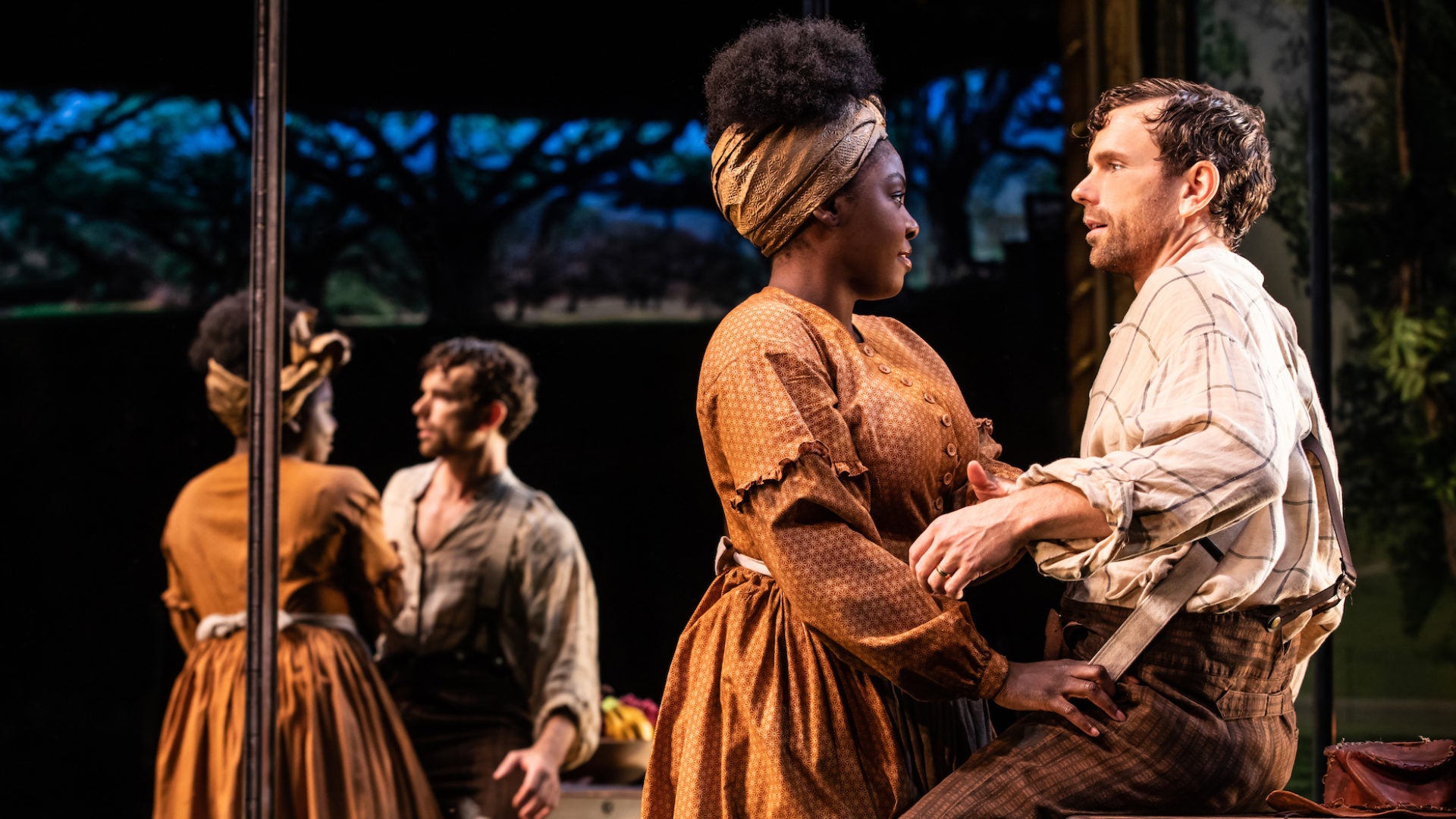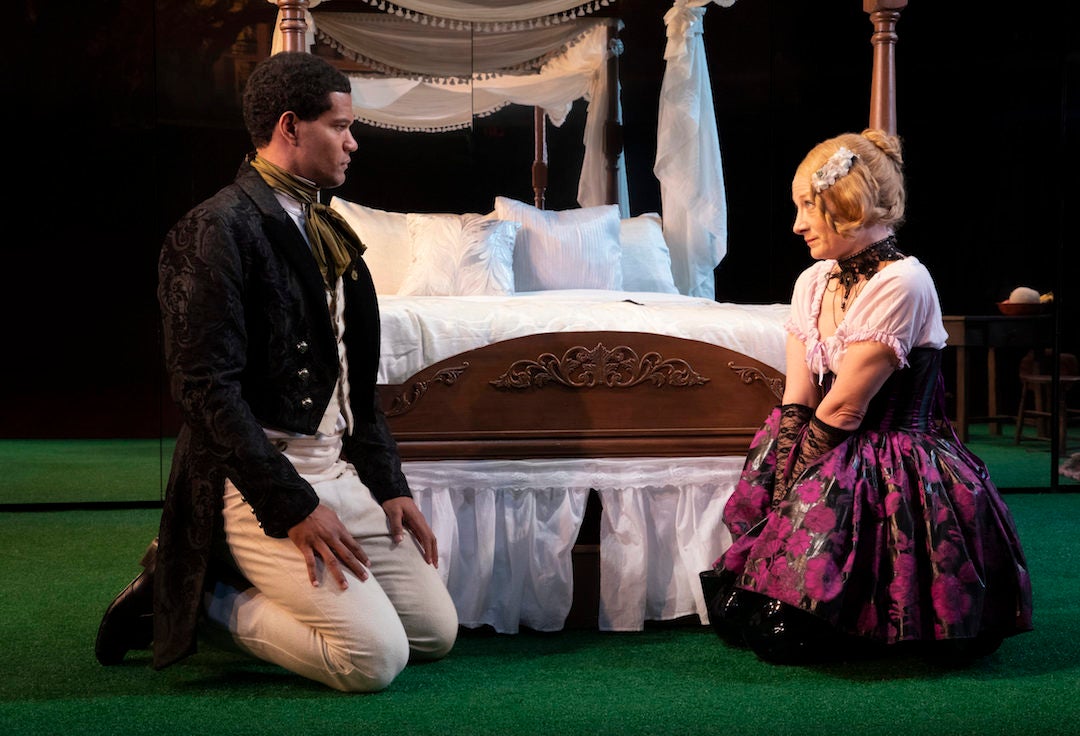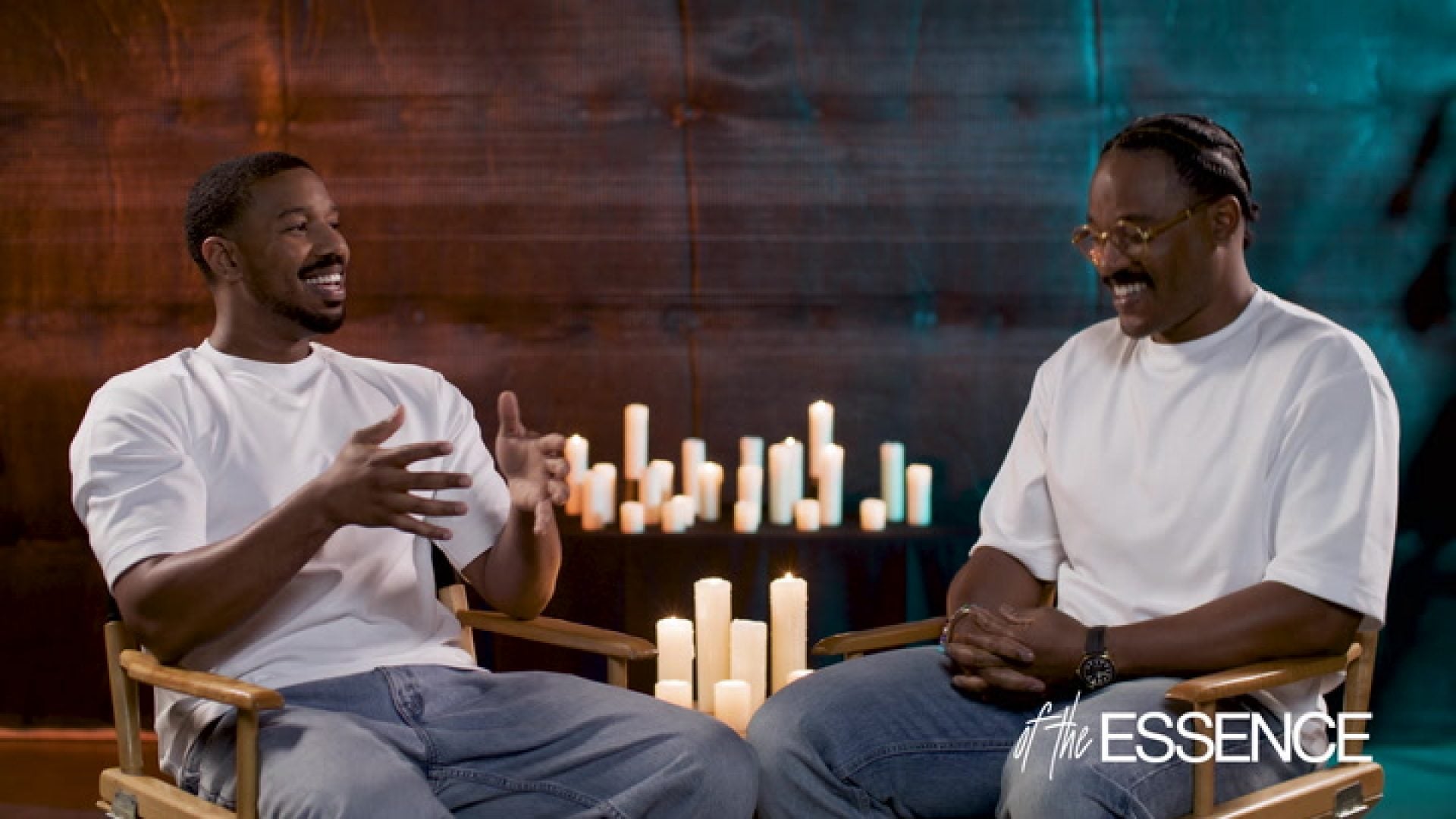
In the immortal words of Jill Scott, everything ain’t for everybody.
Slave Play, the Broadway debut of 30-year-old playwright Jeremy O. Harris, takes audiences through microaggressions, white tears and cutting critiques of white supremacy different from nearly anything ever seen in mainstream theater. But it works its way there using the pain of African enslavement as a narrative device, dipped in satirical comedy.
Harris is a hardcore provocateur, and if watching an enslaved Black woman sexually twerking to Rihanna’s “Work” and storylines remotely making light of slavery aren’t your thing, you might want to cop a hard pass. For all others, consider this your spoiler alert.
Slave Play revolves around three interracial couples in an experimental “antebellum sexual performance therapy” workshop housed on a former Virginia plantation. The comedic psychobabble of two Yale graduate therapists aims at processing the lack of sexual satisfaction Blacks are feeling with their White partners. Keneisha and her British husband Jim; Gary and his partner Justin (who hates identifying as White); Phillip (who’s never felt very Black identified) and Alana—all experience a breakdown in their relationships due to what the psychoanalysts refer to as R.I.D.: “racialized inhibiting disorder.”
That’s all revealed throughout Slave Play’s act two. The politically incorrect, stereotype-laden, triggering stuff comes mainly in act one, before the plot gives away its full hand. A role-playing Kaneisha begs to be called a nasty negress while taken from behind as her husband Jim wields a bullwhip. Phillip, posed as an enslaved fiddler, finds himself on the business end of a big Black dildo in the hands of his girlfriend Alana, dressed as a plantation owner’s horny wife. Gary and Justin tear one another’s clothes off to Unknown Mortal Orchestra’s “Multi-Love,” until “Nigger Gary” orgasms when Justin the indentured servant licks his kinky boots.
Jeremy O. Harris first wrote and produced Slave Play as a grad student at the Yale School of Drama, where he graduated just this year. As a queer Black millennial, Harris takes more inspiration from avant-garde theater than the mainstream work of Black playwrights like Kenny Leon or the late August Wilson. Slave Play built its must-see reputation by thrusting viewers’ faces uncomfortably into the muck of race relations, interracial sexual desire and all points in between.
On its way to Broadway, Slave Play provided post-show lobby counselors during an initial run at the New York Theater Workshop last year, for anyone set off-kilter by the play’s provocations.

Like Suzan-Lori Parks’s White Noise earlier this year (which centered on two interracial couples, and a Black man being temporarily enslaved by his White bestie), Slave Play controversially traffics in slavery and sex to make broader points about Blacks’ and Whites’ modern-day relationship to one another. But are Slave Play’s payoffs worth invoking the inhumane brutality of the slave trade as a dramatic tool?
The question boils down to whatever messages couples take away in private conversations on their rides home from the Golden Theatre. In the absence of an “aha moment” revealing The Point of This Play, Harris seems intent on sparking those private conversations more than anything else.
Slave Play could be the perfect artistic backdrop to the impeachment countdown of the most divisively racist president in recent history, or another way for Black pain to take center stage in the mostly White-targeted entertainment of overpriced Broadway.
The beauty of Slave Play, or its lack thereof, will be in the eye of the beholder.




